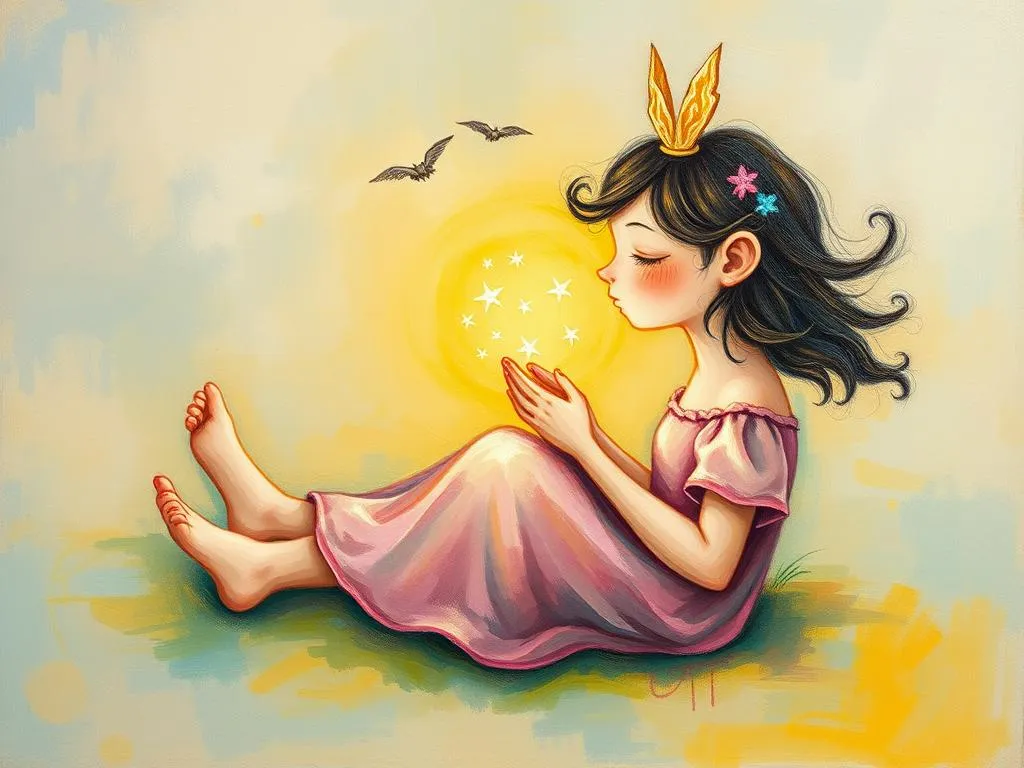
Dreams have long been a source of intrigue and fascination for humanity, bridging the gap between our conscious experiences and the subconscious mind. Among the many types of dreams, devotional day dreams stand out not only for their vivid imagery but also for their capacity to reflect our innermost desires, fears, and spiritual quests. These dreams often invite us to explore our beliefs, values, and relationships, making them particularly relevant in our fast-paced, often disconnected lives. As we delve into the symbolism, variations, and personal connections of devotional day dreams, we may uncover profound insights into our waking lives.
Symbolism and Meaning
At the heart of devotional day dreams lies a rich tapestry of symbolism that can offer insights into our spiritual and emotional states. The imagery encountered in these dreams often reflects themes of faith, surrender, and connection.
For instance, if you find yourself dreaming of a serene temple, this might symbolize a quest for inner peace or a desire to connect with a higher power. Temples often represent places of refuge, contemplation, and community, suggesting that you may be seeking solace or support in your waking life. Alternatively, the temple can also signify a need for self-reflection or a call to explore your own spiritual practices.
Another common symbol in devotional day dreams is the act of worship—whether it be through prayer, meditation, or rituals. Such symbols often point to a deep yearning for connection, not only with the divine but also with yourself and others. They may hint at feelings of gratitude or a need to acknowledge the blessings in your life. If you’re engaging in worship in your dream, it might suggest that you are in a period of introspection, evaluating what truly matters to you.
Figures of light or spiritual guides appearing in these dreams can also carry significant meaning. They are often interpreted as representations of wisdom, inspiration, or guidance. Encountering such figures may indicate that you are being encouraged to tap into your intuition or to seek guidance from a trusted mentor in your waking life. It reflects an openness to receiving help or insight during times of uncertainty.
Nature plays a crucial role in many devotional day dreams, often symbolizing growth, renewal, and the cycles of life. Dreaming of lush landscapes or tranquil waters can suggest that you are in harmony with your surroundings and perhaps feeling spiritually grounded. Conversely, a stormy or chaotic natural scene may reflect internal turmoil or struggles that need addressing. This duality in nature’s symbolism highlights the balance between peace and chaos that resides within us all.
Ultimately, the symbols in devotional day dreams invite a deeper exploration of your current emotional and spiritual state. Reflecting on these symbols may reveal not just what you are experiencing, but also what you truly desire on a deeper level.
Key Scenarios and Variations
While the overarching themes of devotional day dreams remain consistent, the scenarios and variations can significantly influence their interpretations. For instance, dreaming of a peaceful gathering of people engaged in worship might suggest a longing for community and support in your spiritual journey. This scenario emphasizes the importance of social connections and how they can enrich your spiritual life.
In contrast, if you dream of being alone in a sacred space, such as a quiet forest or a secluded room, it may signify a need for introspection and solitude. This variation highlights the importance of self-discovery and personal reflection in your spiritual practice. It might indicate a time for you to step back from external distractions and focus on your inner thoughts and feelings.
Another compelling variation is the presence of conflict or disagreement during a spiritual gathering in your dream. This scenario could symbolize feelings of disconnection or tension in your waking relationships, especially regarding shared beliefs or values. It may highlight the challenges faced when navigating differing perspectives and the need for open conversations about faith and spirituality.
Additionally, consider the emotion tied to the dream. A sense of joy or elation while engaging in devotional practices may reflect a deep connection to your spirituality, indicating that you are in alignment with your beliefs. Conversely, feelings of guilt, anxiety, or confusion could suggest a struggle with faith or a need to reassess your spiritual commitments.
If you find yourself receiving messages or signs in your dreams, this variation may reflect your subconscious urging you to pay attention to certain aspects of your life. These messages could come in the form of symbols, words, or interactions that challenge you to reflect on your beliefs or decisions.
Each scenario carries its own nuances, and understanding these variations can help you gain insights into your spiritual journey. Reflect on which scenarios resonate with you and how they may connect to your current life circumstances.
Real-Life Connections and Takeaways
Connecting devotional day dreams to real-life situations can offer profound insights and serve as a catalyst for personal growth. Many of us journey through life grappling with questions of purpose, meaning, and connection. These dreams can act as mirrors, reflecting our desires and challenges, and prompting us to take meaningful action.
One practical way to engage with your dreams is through journaling. After experiencing a devotional day dream, take time to write down the details, symbols, and emotions you felt. This practice not only enhances your memory of the dream but also allows you to explore its meaning and relevance to your waking life. Ask yourself questions such as: What emotions did I experience? What symbols stood out? How do these elements connect to my current life situation?
Additionally, consider setting aside time for self-reflection. Whether through meditation, prayer, or quiet contemplation, allow yourself to explore the themes presented in your dream. Are there areas in your life where you feel disconnected or in need of support? Are there beliefs or values you have been neglecting? This reflective process can help you align your waking actions with your spiritual aspirations.
Engaging with community can also enhance your understanding of these dreams. Share your experiences with trusted friends or family members who may offer different perspectives or insights. Sometimes, discussing dreams can surface new interpretations and encourage deeper exploration of your beliefs.
Finally, consider the practical implications of your dream. If your dream reveals a desire for deeper spiritual engagement, explore ways to incorporate meaningful practices into your daily routine. This might involve joining a spiritual community, attending workshops, or dedicating time to personal reflection. Embracing these practices can enrich your spiritual life and offer a sense of connection and purpose.
In conclusion, devotional day dreams hold a wealth of symbolism and meaning that can guide us in our waking lives. By reflecting on the symbols, scenarios, and personal connections, we can unlock profound insights that illuminate our spiritual paths. Each dream serves not just as a narrative of our subconscious but as a call to engage more fully with our beliefs, values, and relationships. Embrace the journey of exploration, and let your dreams guide you toward a deeper understanding of yourself and your connection to the world around you.







